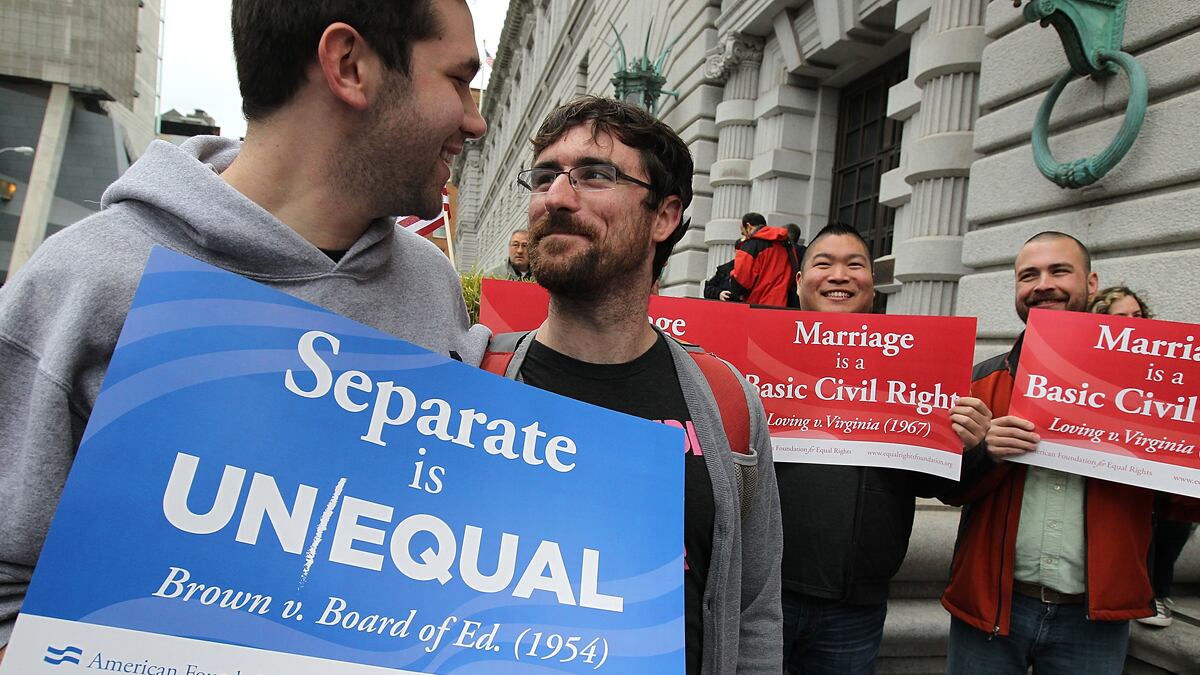“Proposition 8 serves no purpose, and has no effect, other than to lessen the status and human dignity of gays and lesbians in California.”
With those words, the Ninth Circuit Court of Appeals on Tuesday declared California’s Proposition 8 unconstitutional.
The 2-to-1 decision is expected to be appealed, setting up a likely future Supreme Court battle over the fundamental question of marriage equality under the U.S. Constitution.
ADVERTISEMENT
Coming one month into the Republican primary calendar, it also increases the likelihood that this front in the culture war will be reignited in a presidential election year.
The decision itself focused on the constitutionality of the 2008 ballot referendum that stripped same-sex couples in California of the freedom to marry. The circuit court chose to sidestep the deeper questions at hand, stating on page 47: “... we therefore need not and do not consider whether same sex couples have a fundamental right to marry, or whether states that fail to afford the right to marry to gays and lesbians must do so. Further, we express no view on those questions.”
But make no mistake: this is a landmark decision with far-reaching implications. It suggests that attempts to overturn the freedom to marry, where it exists, are unconstitutional because these efforts are primarily motivated by an attempt to remove individual rights and in effect establish a second class of citizens
“Although the Constitution permits communities to enact most laws they believe to be desirable, it requires that there be at least a legitimate reason for the passage of a law that treats different classes of people differently,” the decision stated in its first pages. “There was no such reason that Proposition 8 could have been enacted … All that Proposition 8 accomplished was to take away from same sex couples the right be granted marriage licenses and thus legally to use the designation of ‘marriage.’ ”
The Ninth Circuit Court upheld the decision of Judge Vaughn Walker, who declared Proposition 8 unconstitutional in 2010, dismissing the argument that Walker’s postretirement revelation that he is gay prejudiced his judgment.

While social conservatives lost as little time in criticizing the decision as gay-rights activists and their allies did in celebrating it, the bipartisan team of lawyers who initially brought the case to court, Ted Olson and David Boies—who once faced off against each other in Bush v. Gore—illustrate the broader coalitions that can be formed on this cutting-edge issue. Our society is evolving and expanding its definition of civil rights to include full and equal rights for gay and lesbian Americans, including marriage.
This historic decision is a reminder that the civil rights era is not over. The work of living up to our stated ideals continues every day, as we try to expand the reality of individual freedom beyond rhetoric.
In America, we are always in the process of forming a more perfect union.






